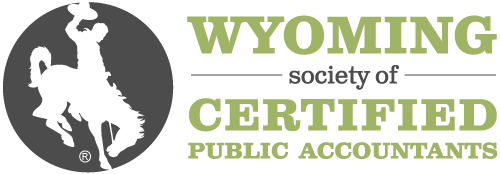Description
This course brings the practitioner up-to-date information on tax issues affecting interest and debt. It covers the definition of bona fide debt, the avoidance of equity and lease treatment, imputed interest rates and debt modification. The various types of interest and their required allocation are explored and reviewed. For the economically troubled client, special attention is devoted to debt cancellation, repossession, discounts, and foreclosure. The program also discusses installment sales, equity participation debt, taxable interest, and bad debts.
Highlights
• Deductible Interest & Debt • Allocation of Deductible Interest • Home Mortgage Interest • Taxable Interest • Installment Sales • Repossession • Debt Cancellation & Foreclosure • Equity Participation Debt • Foreign Interest Withholding • Bad Debts
Objectives
• Determine "interest" and select how much is tax deductible under 163 by: a. Identifying what constitutes bona fide debt considering economic substance and purpose and specifying how transactions with family members and controlled corporations can recharacterize alleged indebtedness into gift or business equity noting the factors used in this recharacterization; and b. Specify the incentives to use corporate debt instead of equity, recognizing the special treatment of failed equity investment under 1244, and determining the differences among debt from installment sales, long-term and leveraged leases, and annuities. • Determine the allocation of deductible interest based on the use and repayment of the loan proceeds and identify the special rules for the allocation of interest expense in connection with debt-financed acquisitions of, and distributions from, partnerships and S corporations. • Identify categories of mortgages and characteristics of secured debt that influence the deductibility of interest, "qualified home," and special situations affecting mortgage interest. • Identify distinctions between dividends and interest noting the taxability of interest on CDs, deferred interest accounts, frozen deposits, and U.S. obligations and specify the treatment of other miscellaneous interest items. • Recognize the importance of the installment method and, specify the 453 requirements and basic terminology associated with using the installment method. • Identify the variables that determine which 1038 rules for repossessions apply, and determine basis and gain or loss resulting from repossession of personal property using installment method and the non-installment method sales. • Recognize the effect that debt cancellation has on net worth and potential income inclusion from cancellation of indebtedness income, and specify exceptions to the general income inclusion rule noting their tax impact. • Recognize the mechanics of equity participation debt noting the use of this financing option to clients by: a. Identifying equity participation loans noting the lender's role in each and common elements and characteristics of shared appreciation loans noting key terms; and b. Specify the economic aspects of shared appreciation mortgages including the tax treatment of shared appreciation mortgages based on the hybrid concept and R.R. 83-51. • Recognize the general tax treatment of interest received from sources within the United States, and identify the tax treatment of foreign interest by: a. Specifying types of interest paid to foreign payees that are subject to withholding noting how to figure the tax; b. Identifying the requirements of tax treaties to ensure entitlement to benefits under the tax treaty and specifying statutory withholding rates for tax-free covenant bond interest; and c. Determining the types of interest of U.S. obligors that are not subject to withholding and the conditions of their exemption. • Identify bad debt categories noting their tax treatment and effect on accounting and reporting by: • Determining the concepts of worthlessness and true debt including the unique characteristics of deductible nonbusiness bad debt. • Recognizing the treatment of bad debts related to political debts, mechanics' liens and secondary liabilities on home mortgages. • Specifying the forms used to report bad debts and the tax treatment of recovered amounts.
Designed For
This program is appropriate for professionals at all organizational levels.
Course Pricing
WYOCPA Member Fee
$439.00
Non-Member Fee
$549.00
Your Price
$549.00
Upcoming Courses
-
Surgent's Guide to the AICPA Quality Management Standards
April 30, 2025
-
2024 Annual Update for Accountants & Auditors
April 30, 2025
-
Performing a Single Audit Under the Uniform Guidance
April 30, 2025
View all upcoming courses
